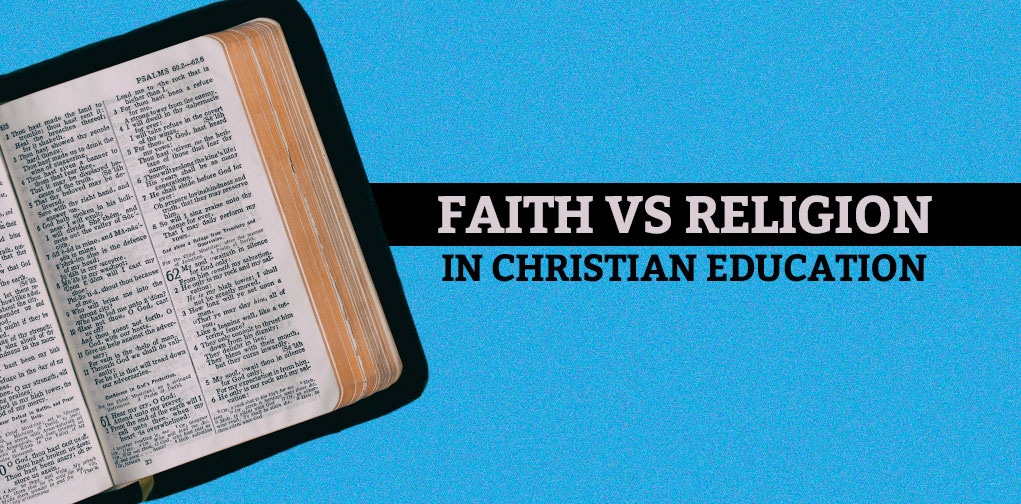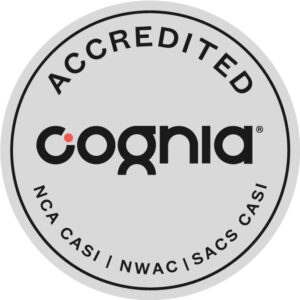
Faith vs Religion is an important subject because we desire our students to have a living faith beyond being a member of a church. Our doctrine is solidly LCMS and Bible based. The goal is for the students to apply faith to their real life and see how it is woven throughout learning and everyday life in a meaningful way, rather than in an isolated block of time. Perhaps it’s not so much faith vs religion as it is genuine faith.
We are a school that brings together varied cultures; we have clearly defined who we are and what we teach. In the tradition of Martin Luther, our goal is to reach the people in the language they can understand. The core of the Message is constant. Faith vs religion means we do not merely adhere to a religious creed, but we take it to heart!
As Martin Luther used the latest technology of his time, we use technology to bring access to show children artifacts and scientific support, real geographical locations, Biblical scholars, documentaries, and even make Martin Luther more real by showing films that help the children visualize who he was. There is no way to measure the impact he made on the world because Scripture Alone, Faith Alone, and Grace Alone were so critical to him. He knew the intricacies of faith vs religion.
We engage the students in learning about the classics, including philosophy and logic. We want the children to understand the context of Paul’s letters to the Corinthians and Galatians. We want to bring in technologies like HoloLens for them to see ancient Greece and Rome, so they can understand the analogies like 1 Corinthians 9:24 (and the connection with the Olympic games then and now), and references like Paul’s great proclamation . .
For in him we live and move and have our being. As some of your own poets have said, ‘We are his offspring.’
Acts 17:28
It seems unexpected to realize that faith and praising God can step outside of “religion” class and bring a joyful noise (as King David did) through song and dance. It is about praise and worship. It permeates how we live and move and have our being. For 19 years, our schools have had students help create a message of praise though physical movement and dance programs that share the Gospel. Faith vs religion means we do not merely adhere to a religious creed, but we take it to heart!
This year, we are anchoring that way of giving back though Global Goals and outreach. Martin Luther wanted people to go beyond memorizing and to think, understand scripture, share the Gospel, and give back. This year, each class in the school is focusing on one of the 17 Global Goals and connecting with outreach organizations to bring in scripture and share the hope of how we can impact society though awareness in the fine arts and sharing that message with families. Teaching kids about a faith in Jesus Christ goes beyond a daily hour-long classroom lesson. It is the anchor of who we are as a school. It means that we also engage the students in learning about what the Bible says to delve deeper. At Renton Prep and Amazing Grace Christian school, faith vs religion is clearly defined and explained. It was once said that “Christian” means “Christ-In-One!”
We use digital resources online and experts in person to talk about what they believe. Our students learn about world religions along with understanding classics and philosophy. If we are truly to engage the world and live Matthew 28:19, our learners need to understand what others believe and know how to respectfully talk with them. They need to know we care about them as humans and not as outsiders who are different from us. They need to know they are loved and respected. They need to know what they believe themselves and why not just because they memorized something. Their faith needs to be real to them and alive. Too often we think that an isolated religion class is enough. It is crucial, but it can’t be the only exposure to faith children have, especially when many do not have the opportunity to go to church with their families.
Historically, formal education was reserved for a small segment of the population. For people who did not have access to education or the ability to read or write, traditions and various learning were passed down through images and storytelling. Historically, Martin Luther wanted all children to be educated so that they could read Scripture and not just listen to what others told them Scripture said. It is important for us to offer Christian education to give young people access to the truth of God’s Word and to teach them to think for themselves. They will need to make decisions in their own lives for reasons that are real to them not just because someone told them they should believe something. We want young people to delve into evidence, evaluate, and apply their faith to understand.

Because we believe God loved us first, we are able to love others (1 John 4:10). Because we have been forgiven, we choose to forgive others (Colossians 3:13). Jesus taught how to love people who are different from us, people who may not be accepted by society, and people who have wronged us. We believe a careful distinction between the Law and the Gospel is the key to understanding Scripture, where the Law reveals sin, and the Gospel reveals the Savior. This becomes the foundation of policies and procedures we have set in place for interacting with others, asking for forgiveness when we have failed, and offering forgiveness when we have been wronged. Our entire school culture is built on the foundation of living out our faith in Jesus daily. It is not in isolated memorization; rather, it becomes central to identifying purpose and passion in life and overflowing with the joy and hope that is in us. With that, we want to share that hope and healing to the world by contributing solutions to a global society.
We want our learners to engage with the world and not hide from it. We want them to use their mind, heart, and spirit to make a positive impact in the world. To do that, it is also important that we train young people to evaluate, research, and learn to listen. They should respect people with different perspectives. We want them to use the latest technology to amplify the positive aspects of what God has done in our lives. “By providing a well rounded; technology enabled Christ-Centered Education” About Renton Prep
For it is by grace you have been saved through faith, and this not from yourselves; it is the gift of God, not by works, so that no one can boast
Ephesians 2:8
This knowledge brings us a joy and purpose in life (John 10:10). We know that following Jesus does not make life perfect or necessarily easier because we live in a world full of sinful people like ourselves. Jesus said that he has told us so that in Him we can have peace: “In this world you will have trouble. But take heart! I have overcome the world” (John 16:33). That is why it is so important to distinguish between Faith vs Religion.
The Gospel reveals what God has already done for our salvation. The chief purpose of the Law is to show us our sin and our need for a Savior. The Gospel offers the free gift of God’s salvation in Christ. The whole Bible can be divided into these two chief teachings. It is in the proper distinction between Law and Gospel by which the purity of the Gospel is preserved and the three solas of “grace alone,” “faith alone,” and “Scripture alone” are united. (see appendix)
Ecumenical means: promoting or relating to unity among the world’s Christian churches. In addition to reading the Bible, we profess and teach the three ancient ecumenical creeds compiled during the early, formative years of the Christian era – the Apostles’ Creed (ca. third century A.D.), the Nicene Creed (fourth century), and the Athanasian Creed (fifth and sixth centuries). In addition, the Book of Concord includes Luther’s Small Catechism (1529) and the Augsburg Confession (1530), and five other 16th century statements, including Luther’s Large Catechism and the Formula of Concord. (More detailed explanation on page 48).

